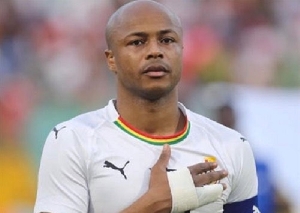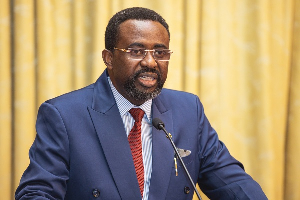PART I
A CNN report on 7th January 2003 quoted the Prime Minister of Japan Junichiro Koizumi as saying that the next Finance Minister should be the one who has 'aggressive policies' for development and ultimately to sustain the economy of Japan. The PM knows indeed what he is talking about. The global waters of development are getting deeper and faster than the capitalists' proponents ever expected it to be. The global capitalist party is aggressive. It seems to have no place for traditional economic models. Competition is high and so is copying, modifying and re-naming products to appeal for consumers' conscious thought for purchasing. Most countries are today braving the capitalist theory and providing capital market for open competition. The wave of competition has no preference and 'barriers' (so they say) which is to provide the common platform for sellers and buyers to seek fair sales. That seems to be good if all countries and businesses have started from the same capacity movement line. The picture is like JSS students in Achimota and Prapra Babida LA who are being examined with the same syllabus and a standard set questions from West African Examination Council (WAEC). We are all aware of the result of such general assessments. The JSS students are often aware of which schools will pass and well. Some of them even know or can predict their grades before they start writing the examinations. The report says (Ghanaweb) the best Amansie JSS student had an aggregate grade of 20. Being a teacher myself (I served in the Central Region) for some time in rural village for years, I think the student did well and so are the general result for the Amansie region.
There are so much aggressive barriers in the so-called competitive capitalist market than before. It has to be accepted that the advanced countries are not going to wait and see developing countries flood their markets with any products they can produce - good or bad. Exporters of dry fish in Ghana are fully aware of the strenuous European Union (EU) laws for fish imports from Ghana in to EU markets. Japan as a country also has one of the difficult laws as far as imports into the country are concerned. Nonetheless, capitalism has become a global song and all countries are struggling to sing the lyrics well or just murmuring something. However, one pays a serious price for murmuring without singing correctly. That is the price 3rd World Countries are paying for today.
Can developing countries survive? Without dragging readers into the twists and turns of the global capitalist trade/application, we have to ask ourselves how less developed countries can hold on to growth in development and the sustenance of their economies. In saying this, I wish to add that most developing countries in Africa and Ghana for that matter are 'children' of IMF and World Bank (WB). Most 3rd World Countries cannot survive without borrowing from these financial institutions. To say the truth, almost all developing countries are indebted to these financial institutions that they can barely put up any meaningful economic plan without loans and credits (as at 1992, Mozambique was using over 60% of its foreign revenue for debt servicing). Of course, many of the fiscal policies of developing countries are prototype-worked out plan by IMF and WB. Diversion of programs from what their loans are intended for is a breach for further loans and a 'curse' towards economic woes.
So who controls our economies? Well, our economies and controlled and directed by the financiers of our projects. This is normal in any case since they give out the monies. Our individual planning and policies are wrapped up in the country (Ghana and other developing countries) for financial 'approval' and when loans are provided the economic plan starts moving. People in Ghana know that our budgets are prepared on financial anticipation for the foreign loans and credits. In real practice the economies of borrowing countries (3rd World or developing) are controlled by the creditors and borrowers stated somewhere above.
Additionally, the bulk of the money that IMF and the WB offer as loans and credits to developing countries come from the dominant capitalist countries (and economic market leaders). So if the money from the borrowing institutions come from the developed countries who also control the market and the economic platform then it goes to say that our - 3rd World Countries - economies are dictated by the developed countries. Are they therefore the ones also planning our programs for us through the IMF and WB? Will the programs for the economies of borrowing countries be planned to suit the creditors or the advanced countries? My answer is a big yes to all the questions.
To agree with me if that makes sense, then that is capitalism. It is part of capitalist theory. One has to be aggressive and smart with serious competition. The rules of equal competition are … well, that is capitalism!
Being smart and aggressive in capitalism is essential for the competition. Asian countries have demonstrated this for many years. In spite of the financial meltdown that hit this continent from 1997, the region has major countries like Singapore, Malaysia, Japan, Taiwan, Hong Kong-China (former British), South Korea and Brunei being major global competitors. These countries are leaders in technology. Apart from Brunei that has abundant oil being a natural boost, the other countries have worked hard to put their countries in the competition.
Something special is common to all these Asian countries. That is culture! The development and positioning of these countries are built solidly on very closed culture. Much as they compete in the capitalist market, their cultural traits lead them. Until recently when some countries have agreed to let say ENGLISH be a second language and to aid faster economic planning and development for competition, their local languages for example has and still be the influential (cultural) language. Buy anything from Asian countries and more especially the countries mentioned above and all marketing information are in their local dialects. One cannot export products to say Japan without Japanese description of instructions and ingredients on the items. Products, which fail on these simple byelaws, will have them returned to the exporter. I say again that culture (which is the way of life) has been the dominant force with which the previous leaders of some of the countries who were seen as autocratic used their opportunities as presidents to build the unique cultural-economic foundation for today's competition and development. Examples of such countries are South Korea, Singapore and Malaysia. This is the aggressive and smartness of capitalism! The fear of allowing China into the global trade is not their human right records. Smart and aggressive capitalists know the threat of dominance China will pose to trade.
In Ghana we have not clearly defined our economy as either agricultural or purely scientifically minded business innovative entity. Innovative businesses are not static. They are built on forecasts and divesting resources at will. We have only accepted that we are agricultural country just because we produce cocoa. However, our educational set up does not tailor-measure and model students into agriculture (I mean scientific agriculture). We do not even have one complete Agricultural University in Ghana. We have accepted the 'tags' as pioneers of successful Structural Adjustment Program (SAP) and Enhanced Structural Adjusted Program (ESAP). But read WB reports from 1990 and something scanty or nothing at all is said about SAP. Not even Ghana, which was always mentioned as the best SAP country has any place in their reports. SAP is an extension of the capitalist forecast and application through the financial bankrolls of IMF and WB. This suggests that we have to identify where we are standing as a country in today's capitalist market. Agricultural nation is a tag and in 1635 Malcom X said in his address that 'tags' are dangerous and can 'sometimes kill you'. I certainly think tags are killing Ghana. Many tags, "Gateway to West Africa", "First Independent country south of Sub-Sahara Africa", "One of Best democratic States in Africa", "Two time Africa Nation Cup Champions", "The First country to receive a visiting US President to Africa" and more…
If capitalism has changed the world, so has the tastes and marketing strategies. Our traditional crops like cocoa is not going to find a place in the market. Are we not aware that there are countries, which are producing genetically modified cocoa? That is the news. I am not also sure if the new trend of cassava chips export business will ever drive us anywhere. I mean how can we compete in this big but close global market with cassava chips?
A clear-cut example to redefine our economy is to justify where we are and want to be. This is to lead us in development, which should be scientifically linked to our educational system - thru planning and implementation. This plan can be envisioned over years and model the capacity to hold the backbone of the economy.
In the meantime, I wish to offer this piece of information to our economic planners for improving local business and foreign revenues:
a). There is no way development plan and education can be executed in isolation. This has been perhaps the greatest mistake of our planning towards development. In early 1990's Polytechnic Institutions sprang up (with loans too I think) to produce Ghanaian students/working force who will be the engine of the country's development. The paper work identifies the certificate of these institutions to be equaled to the Universities. Each year Poly students go on strike to demand this degree equality. Out of school, I am not sure if 20-50% of Poly graduates have ever received employment since the program started. In 1999/2000 the Minister of Education asserted when Poly students went on strike that the facilities in the Polytechnic institutions are not enough to offer degrees as the Universities in Ghana. Here are the questions:
1. Is our loan acquisition for Polytechnics establishment being justified?
2. Is the development plan of Polytechnic education on course or once again mere dressing horses for ceremonial display?
To talk of facilities is complex. Do we need vast kilometers of land for 'tro-tro' drivers to drive thru the campus to the other side of the city like Legon and Achimota before it becomes a degree awarding institution? This educational philosophy only works in Ghana. In some countries (I can site many countries in different continents and even institutions), universities awarding degrees with their students furthering MA/MSc./Ph.D. and other graduate diploma in some top US and Britain Universities have just one storey building as the whole university. It is what goes on as academic excellence in the university and not excess land for lectures and campus workers to rear rabbits, sheep and goats.
b). A diversion from traditional cash crop is urgent. Ghana has the capacity to produce high quality leather, rice, banana, mango (all types), oranges (and a couple of forest fruits) and fresh tomato. These are world class products that are in constant demand in any part of the world and at most times. Countries in dry geographical locations are using irrigation to produce these fruits in huge quantities and we in Ghana import them. In today's fast pace working climate, people have no time to cook. They rely on fast foods/can foods and fruits. I bet Ghana has these fruits in excess and we can break the world market in mass production. This needs a long term plan and investment. We should not rest on cocoa and fish. Major fishing countries like Norway and Canada are there and we are exporting fish to Europe.
c). Huge tourism drive. Tourism should not be a yearly affair like PANAFEST. It should be a continual business. The vast beaches should be turned into playing/pleasure grounds and fanciful activities. The Osu Castle is one of such huge tourist spots. The castle should not have been the seat of government administration when Mr. Kufour became the president. Nothing there should have been touched. From the very time former President Rawlings left the castle, the place should have been used as our number one spot for tourism to attract both local and foreign tourists. I am sure every Ghanaian would have loved to visit Osu Castle even at a fee.
A food for thought. We need a break to start a change. This change I vision on non-traditional crops which a local plan should involve farmers and chieftaincy institutions. Yes, majors drive in production and processing. Not scattered stores/kiosks of selling peanuts and pieces of bagged sugar along the roads. But that has been the only alternative as Ghanaians await the vision of growth to tackle the economy.
Kaytu, Kwame Atta PS: I welcome comments and criticisms



















